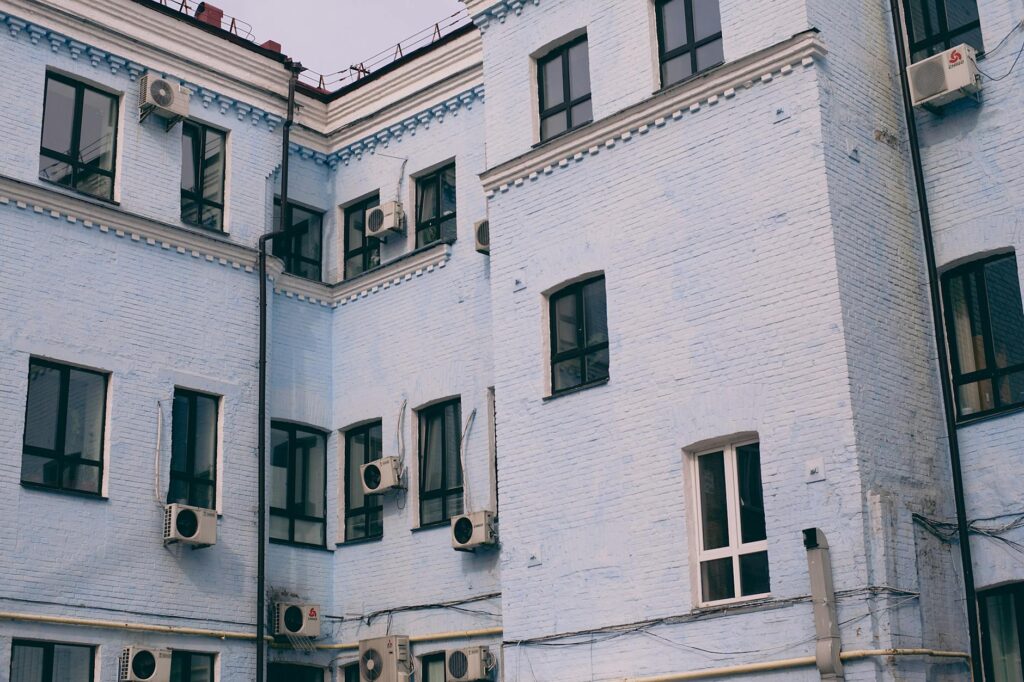Keeping your home cool and comfortable during those hot summer months relies heavily on your air conditioning unit. But even with regular use, many homeowners overlook a crucial aspect of AC maintenance that can significantly impact efficiency and longevity. This often-forgotten step can lead to costly repairs down the line, so let’s dive in.
Understanding Your AC System
Before we reveal the #1 forgotten task, it’s important to understand the basic components of your AC unit. A typical system comprises an outdoor condenser unit  , an indoor evaporator coil, and connecting refrigerant lines. Regular maintenance ensures these components work together harmoniously. Learning about your specific system is key to proper upkeep.
, an indoor evaporator coil, and connecting refrigerant lines. Regular maintenance ensures these components work together harmoniously. Learning about your specific system is key to proper upkeep.
The #1 Forgotten Thing: Cleaning the Condenser Coil
The number one thing homeowners forget to do for their AC unit is clean the condenser coil. This vital component, located outside your home, releases heat and is often choked with dust, dirt, leaves, and other debris  . This buildup restricts airflow, forcing your unit to work harder, consume more energy, and potentially overheat.
. This buildup restricts airflow, forcing your unit to work harder, consume more energy, and potentially overheat.
Why Coil Cleaning is Crucial
A clogged condenser coil significantly reduces the efficiency of your AC unit. This means higher energy bills and a shorter lifespan for your system. Regular cleaning can improve efficiency by up to 10%, saving you money and reducing your carbon footprint. This article explains the financial benefits in more detail.
How Often Should You Clean the Condenser Coil?
Ideally, you should clean your condenser coil at least twice a year – once in the spring before heavy use and again in the fall after the cooling season. However, if you live in a particularly dusty or dirty area, more frequent cleaning may be necessary. Consider scheduling professional cleaning if you’re not comfortable doing it yourself.
The Cleaning Process
Cleaning the condenser coil is relatively straightforward. You can use a garden hose with a spray nozzle to gently wash away debris. However, be careful not to damage the fins. A coil cleaning brush can also help dislodge stubborn dirt. Watch this video tutorial for a visual guide.
Professional AC Maintenance
While DIY cleaning is possible, professional AC maintenance is recommended at least once a year. A qualified technician can perform a thorough inspection, identify potential problems early on, and ensure your system is operating at peak efficiency. This proactive approach can prevent costly repairs down the line and extend the life of your AC unit. Regular maintenance is also recommended by manufacturers and often covered by warranty.
Other Important Maintenance Tasks
While cleaning the condenser coil is paramount, don’t forget other important maintenance tasks, such as changing the air filter regularly  . A clogged filter restricts airflow, reducing efficiency and potentially damaging the system. Also, check for any leaks or unusual noises. Addressing these issues early can save you money and prevent major problems later on.
. A clogged filter restricts airflow, reducing efficiency and potentially damaging the system. Also, check for any leaks or unusual noises. Addressing these issues early can save you money and prevent major problems later on.
Conclusion
Neglecting to clean your AC unit’s condenser coil is a common oversight with significant consequences. By making coil cleaning a regular part of your home maintenance routine, you can significantly improve your AC unit’s efficiency, extend its lifespan, and save money on energy bills. Don’t forget to also schedule regular professional maintenance for a comprehensive approach to AC care. Remember to consult your user manual for specifics on your unit.
Frequently Asked Questions
What are the signs of a dirty condenser coil? Reduced cooling performance, increased energy bills, and unusual noises from the unit are common indicators.
Can I use a pressure washer to clean the coil? No, a pressure washer can damage the delicate fins of the coil. Use a garden hose with a gentle spray or a coil cleaning brush.
How long does it take to clean the condenser coil? Cleaning usually takes around 30 minutes to an hour, depending on the level of dirt and debris.
Is it safe to clean the condenser coil myself? Yes, but be cautious. Turn off the unit before cleaning and avoid getting water into electrical components.
How much does professional AC maintenance cost? The cost varies depending on location and the complexity of the service, but it’s a worthwhile investment to prevent expensive repairs.





